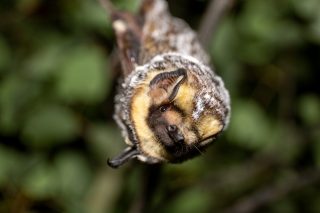WildView™
An Eye on Wildlife
Wildlife Conservation Society Menusearch for stories
- Browse Categories
- Art and Nature
- Assignments
- Bronx Zoo
- Crustaceans
- Education
- Environment
- Guanaco
- Herping from Home
- Horticulture
- In Memoriam
- New York Aquarium
- People
- Seasons
- Technology
- Throwback Thursday
- WCS 125th Anniversary
- WCS Chronicles
- Wild Places
- Wildlife
- Amphibians
- Antelope
- Arachnid
- Bats
- Bears
- Big Cats
- Birds
- Birds of Prey
- Bison
- Bovine
- Buffalo
- Canids, Dogs, Wolves
- Caribou
- Carnivores
- Cats
- Deer
- Dolphins
- Elephants
- Elk
- Endangered
- Fish
- Fox
- Giraffe
- Giraffes
- Great Apes
- Have No Fear
- Hippos
- Horses
- Insects
- Invertebrates
- Jellies
- Lemurs
- Mammals
- Marine Life
- Marsupials
- Mice and Rats
- Mongoose
- Monkeys
- Moose
- Muskoxen
- Ocean Giants
- Okapi
- Otters
- Pangolins
- Pigs
- Primates
- Rabbits, Hares, Pikas
- Rays
- Red Pandas
- Reptiles
- Rhinos
- Rodents
- Seals and Sea Lions
- Sharks
- Sheep and Goats
- Tapir
- Ungulates
- Walruses
- Wildlife
- Zebra
- Wildlife Health
subscribe

Cori Lausen
@wcsbatscanada@wcscanadabatsCori is the Director of Bat Conservation at WCS Canada. She completed her PhD in Ecology at the University of Calgary in 2007. Both her MSc and PhD theses were on bats, with the former focusing on behavior and physiology, and the latter on landscape genetics. She joined WCS Canada in 2011 as part of her NSERC Industrial Research and Development Fellowship, investigating winter bat activity and hibernation in western Canada. The Bat Program that she has developed focuses filling critical knowledge gaps about bats, changing policy through a science-based approach, outreach, and education, and responding to major conservation threats to bats including white-nose syndrome, a catastrophic disease impacting hibernating bats in North America.
